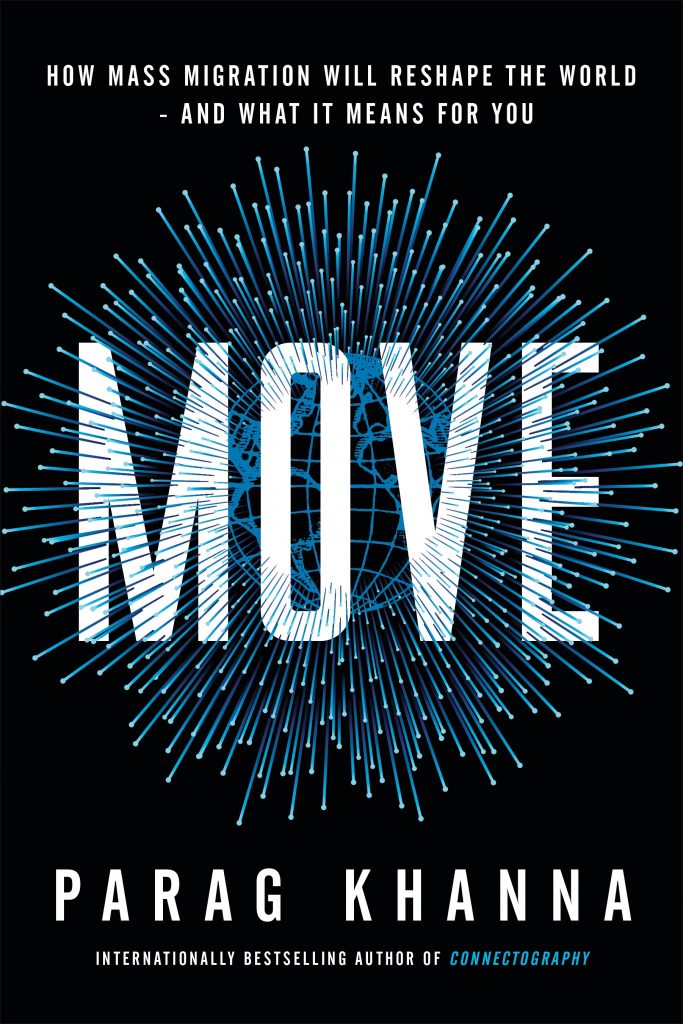Where will you live in 2030? As climate change tips toward full-blown crisis, economies collapse, governments destabilise and technology disrupts, we’re entering a new age of mass migrations.
In the 60,000 years since people began colonising the continents, a recurring feature of human civilisation has been mobility – the constant search for resources and stability. Seismic global events – wars and genocides, revolutions and pandemics – have only accelerated the process. The map of humanity isn’t settled, not now, not ever.
What will the map of humanity look like in 2050? Which areas will people abandon and where will they resettle? Which countries will accept or reject them? As today’s world population, which includes four billion restless youth, votes with their feet, what map of human geography will emerge?
In conversation with broadcaster and host of the GlobalGoalsCast, Edie Lush, global strategy advisor Parag Khanna will provide an illuminating and authoritative vision of the next phase of human civilisation – one that is both mobile and sustainable.
In the years ahead people will move to where the resources are and technologies will flow to the people who need them, returning us to our nomadic roots while building more secure habitats. Don’t miss this fascinating look at the deep trends that are shaping the most likely scenarios for the future.
Praise for Parag Khanna’s Move:
‘Daring, smart, unforgettable . . . A rich exploration of our times and the way forward.’ – Elif Shafak
‘Thought provoking . . . As this book demonstrates, the climate crisis is just one of many forces that will have humans more on the move this century.’ – Bill McKibben
‘Scintillating . . . In a political climate where the oldest human impulse – to move for a better life for ourselves and our kids – is demonised by nationalists across the world, Khanna offers a clear-eyed, unapologetic defence of the right to migrate.’ – Suketu Mehta
‘In Move, Parag Khanna cuts through the clutter like no one else, providing a roadmap to a more sustainable future.’ – Nouriel Roubini







